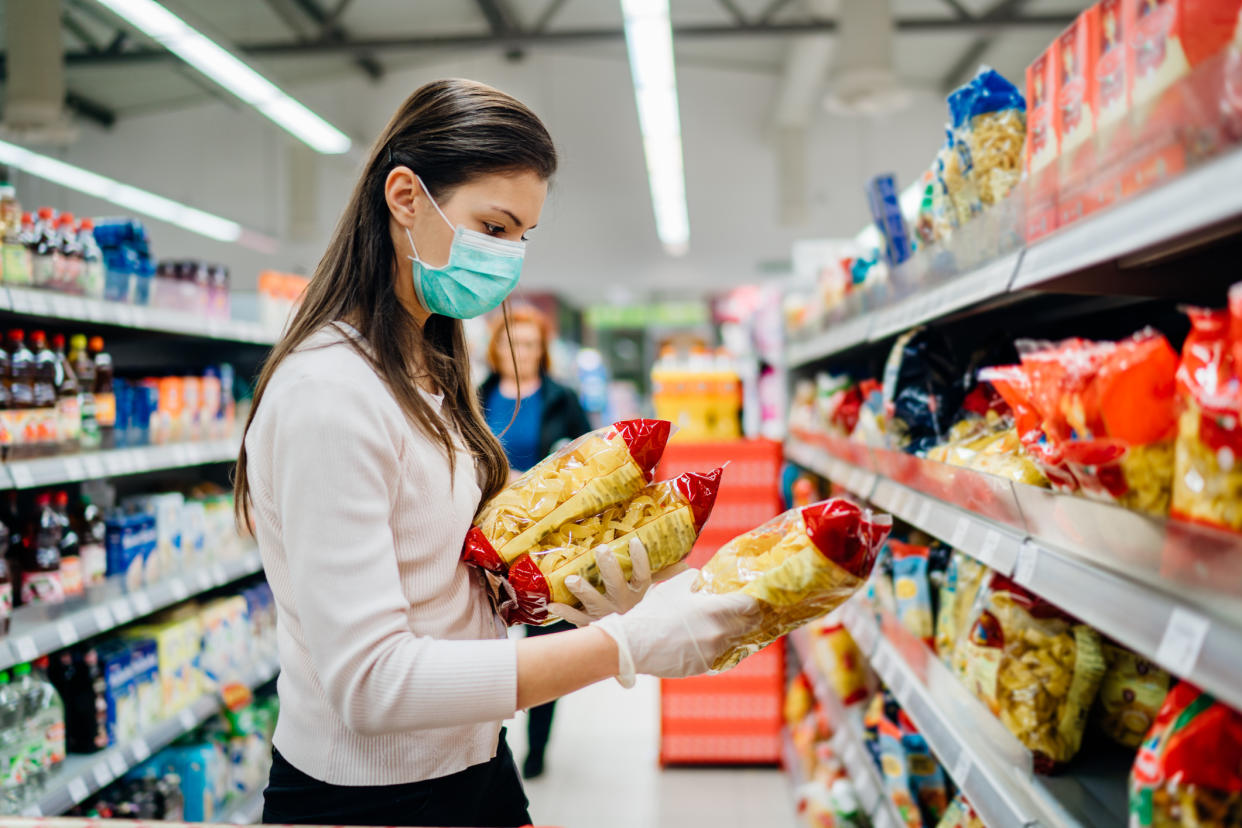Should we be wearing face masks or coverings in supermarkets?

After seven weeks of restrictions, coronavirus lockdown measures have been slightly eased.
From 13 May, people unable to work from home were allowed back to work – albeit following strict new COVID-19 policies.
You are now allowed to meet one person from one other household as long as you remain two metres apart, and limits on spending time outdoors for “leisure purposes” have been relaxed.
The government additionally advised people to wear face coverings in some enclosed spaces.
This has led people to ask which enclosed spaces are covered in the new guidelines, and specifically whether they need to adhere to this rule in supermarkets.
Read more: Half a million Brits take suicide prevention course during lockdown
The British Retail Consortium (BRC) has confirmed that supermarkets do not have to enforce a face mask rule because social distancing measurements are already in place.
“Retailers do not require customers to wear face coverings in-store,” said Andrew Opie, BRC director of food and sustainability. “Government guidance states that people should ‘wear a face covering in enclosed spaces where social distancing is not always possible, and they come into contact with others that they do not normally meet’.
“Shops can only open if they enforce social distancing measures, which has been the case for thousands of stores who have stayed open.”
While face masks aren’t legally required, many supermarket chains are taking further steps to protect customers in store.
Read more: Video shows how easily coronavirus can spread on public transport
Leading supermarkets are following government protocol when it comes to face coverings and stating that it’s not mandatory for customers or staff to wear masks. That by no means stops customers from wearing face masks in store if they would feel more comfortable wearing them.
At Tesco, every member of staff has been given access to a mask should they want to use it, although again, this isn’t mandatory.
Similarly, staff at Lidl have been issued with safety visors to add a layer of protection.
Instead, supermarkets are limiting the spread of the virus by putting other measures in place.
All leading supermarkets are “limiting the flow of people” going into stores where needed, with many locations providing vulnerable people and key workers with dedicated shopping times.
Iceland has also made “further updates” to store policies to stay aligned with government guidelines, including “agreed limits of the number of people in our stores, and markers on the floor to try to ensure that customers keep 2m/6ft distances”.
Read more: Scientists want to investigate if mouthwash kills coronavirus
Morrisons has also recently introduced a two-queue system to some stores in the UK. People are able to queue separately for a trolley or basket and have them sanitised with antibacterial wipes before entering the stores.
Some customers have expressed reservations over smaller, local stores though, like Sainsbury’s Local and Tesco Express. It’s harder to stay socially distant from other shoppers when the aisles are smaller.
Others have expressed concern over the relaxed rules, claiming people in supermarkets are behaving like “COVID-19 has been cured”.
Just done my first supermarket trip since lockdown eased in England. It is was horrendous. Never been so glad to get out of a shop.
People are behaving like COVID-19 has been cured.
There is goong to be a second spike in England.
It is going to be carnage— Steven Roy (@stevenroy27) May 17, 2020
Regardless of the size of the food store, distancing rules are still in place, with supermarkets limiting the amount of people able to access the stores at any one time.
Fewer people are allowed in smaller stores than in big stores, meaning the queues could be longer but social distancing is still in place.
Although not legally obliged to wear a face mask, many customers are still opting to wear one as an extra layer of protection.




